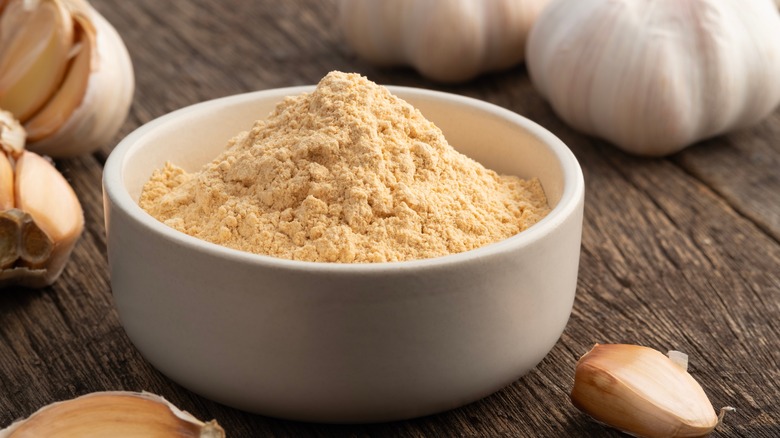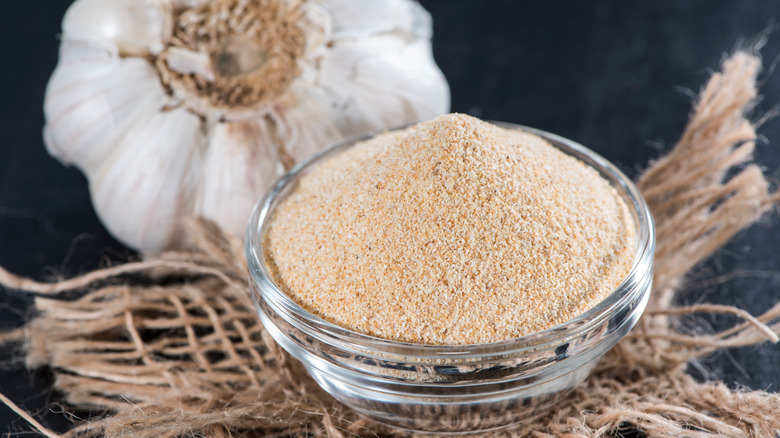Is The Garlic Powder You Buy At The Grocery Store A Pure Substance Or Mixture?
Even if your cooking skills are minimal, odds are you've got a container of garlic powder somewhere in your spice cabinet. The versatile seasoning can be used in everything from meatballs to burgers to tacos, and some even like it sprinkled over a slice of pizza. Just like garlic salt and granulated garlic, these seasonings are a great way to incorporate a garlicky flavor into your food without needing to chop up a fresh clove. But did you know that garlic powder is just a fresh clove, dehydrated? The powdered version is more similar to a clove of garlic than you may have thought, which also means that garlic powder is not a pure substance but rather a mixture. But why is this the case?
In science, a pure substance is either a chemical element or a compound. Elements are what you find on the periodic table, such as gold, iron, and helium. Compounds are when those elements combine to make something new: Think table salt or even water. While we'd love it if garlic had its own spot on the periodic table, unfortunately, it doesn't, which means it isn't a pure substance. Meanwhile, garlic powder is made by dehydrating garlic cloves and then grinding them into a fine powder, and during this process, it doesn't lose or gain any of the raw garlic's qualities.
In short, both garlic and garlic powder are mixtures, made up of a variety of compounds like proteins, water, and carbohydrates.
Substituting garlic powder for fresh garlic
Now you might be wondering how much garlic powder you need for one clove of garlic, given how we've just explained its chemical makeup. To make this substitution, you can use ⅛ teaspoon of garlic powder for every clove. This may seem like a small amount, but garlic powder is quite potent, and its flavor can quickly become too much, so remember that a little goes a long way. But if you're a garlic fanatic and simply can't get enough, feel free to use as much as your garlicky heart desires. Or, instead of adding more, try one of our favorite garlic hacks and activate the powder in a bit of water. This will help wake up all the complex flavors that often go unnoticed.
If you're out of powder, use garlic salt or granulated garlic in a pinch. However, be warned that these will produce slightly different results. If you have granulated garlic on hand, use ¼ teaspoon to substitute one clove. This seasoning is more flakey, so it may produce a different textural result, depending on how much you use. Garlic salt isn't the best substitution, because it's going to add additional salt to your recipe. But if you're in a bind, remove ⅜ teaspoon worth of salt from your recipe so that the garlic salt doesn't overtake it.

